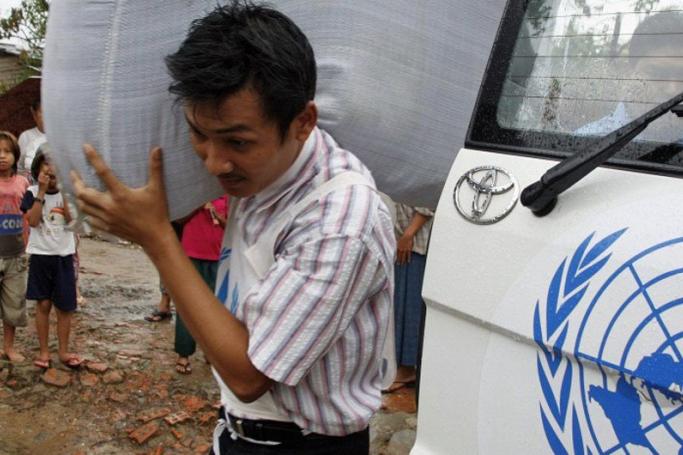UN human rights chief Volker Turk said on Thursday up to 40 aid workers have been killed in Myanmar since the military coup that ousted democratically elected leader Aung San Suu Kyi in 2021.
In a report to the body's Human Rights Council, Turk condemned "direct attacks" on aid workers, who mainly work for local organisations, amid fighting between the military junta behind the coup and its opponents.
He said the deaths were part of "deliberate and targeted" efforts to obstruct aid and "a calculated denial of fundamental rights and freedoms for large swathes of the population".
The UN has already warned that obstruction or denial of humanitarian assistance may amount to serious violations of international human rights and humanitarian laws.
The junta has killed and injured thousands of civilians while destroying goods and infrastructure necessary for survival, including food, shelter, and medical centres, according to Turk's report.
An estimated 1.5 million people have been internally displaced and approximately 60,000 civilian structures have reportedly been burnt or destroyed, it says.
More than 17.6 million people, or one-third of the overall population, require some form of humanitarian assistance.
"Civilians live at the whim of a reckless military authority that relies on systematic control tactics, fear and terror," Turk told the council.
"Credible sources indicate that as of yesterday, 3,747 individuals have died at the hands of the military since they took power, and 23,747 have been arrested," the UN High Commissioner for Human Rights said.
Those figures include only documented cases, meaning the actual toll is probably much higher.
In June, the United States announced sanctions again Myanmar's defence ministry and two "regime-controlled" banks that enable transactions between the military regime and foreign markets, to buy arms and other materials.
AFP












